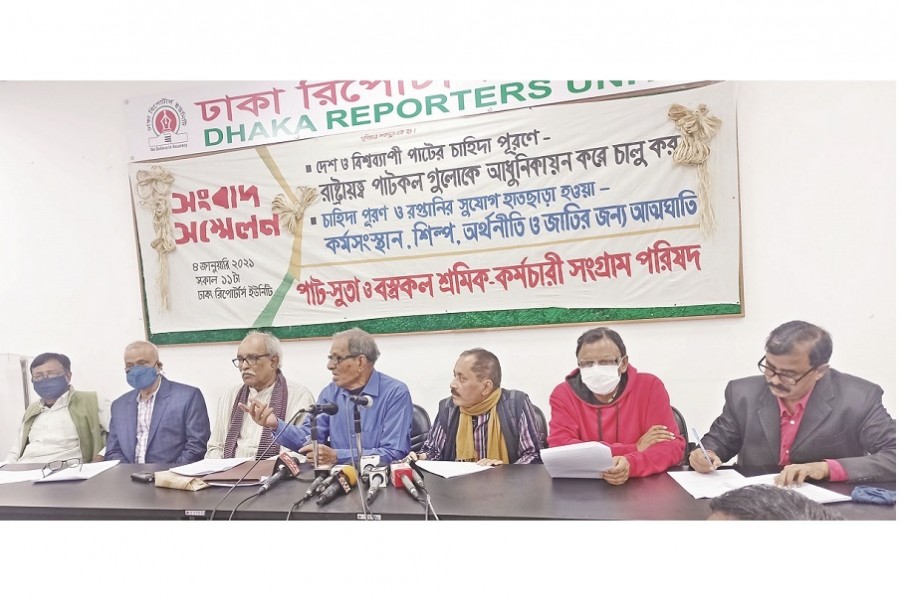Jute, Yarn and Textile Workers Employees Struggle Council (Paat-Shuta O Bostro Kol Sramik Karmachari Sangram Parishad) has called upon the government to reopen state-owned jute mills and modernise them immediately to tap the country’s export potential of jute and jute-made products and meet the growing demand of the international market.
It also demanded immediate payment of dues of state-owned jute mill workers and acquired jute mills and yarn mills workers.
The call and demand were made at a press conference at the Dhaka Reporters' Unity auditorium on Monday morning.
At a press conference, Sahidullah Chowdhury, convener of the council, said the state-owned jute mills need to be modernised to meet the demand of the country and the world.
Now the privately- owned jute mill is the only jute mill in the country. There are 4,812 looms out of 16,000 looms. Its production capacity is now 319,611 tonnes, he said.
He also said that it would be suicidal for employment, industry, economy and the nation if demand and export opportunities were missed.
Mr Chowdhury said the situation created across the globe as a result of the Covid-19 pandemic has increased the importance of using environmentally- friendly products.
The 74th session of the United Nations has called for reducing the dependence on plastic products and increasing the use of natural fibres, he insists.
“In line of this, the use of jute and cotton products in developed countries will increase several times from 2022 to reduce environmental disasters," he said, adding that this has led to huge demand for jute products worldwide.
According to Mr Chowdhury, despite the demand for jute products all over the world, Bangladesh and India are the two major producers of jute and jute products. It may be mentioned that the production of jute products in India has come down from 1.6 million tonnes to 1.1 million tonnes. Now, India cannot afford to export to meet its own needs.
“So it was important for Bangladesh to take quick and practical steps to harness this potential. However, at this time the government closed the state-owned jute mills. The decision to close the jute mills abruptly on the advice of bureaucrats and to become angry with the behaviour of some pro-government trade union leaders without prior thinking, research and survey is not acceptable, the Council convenor said.


